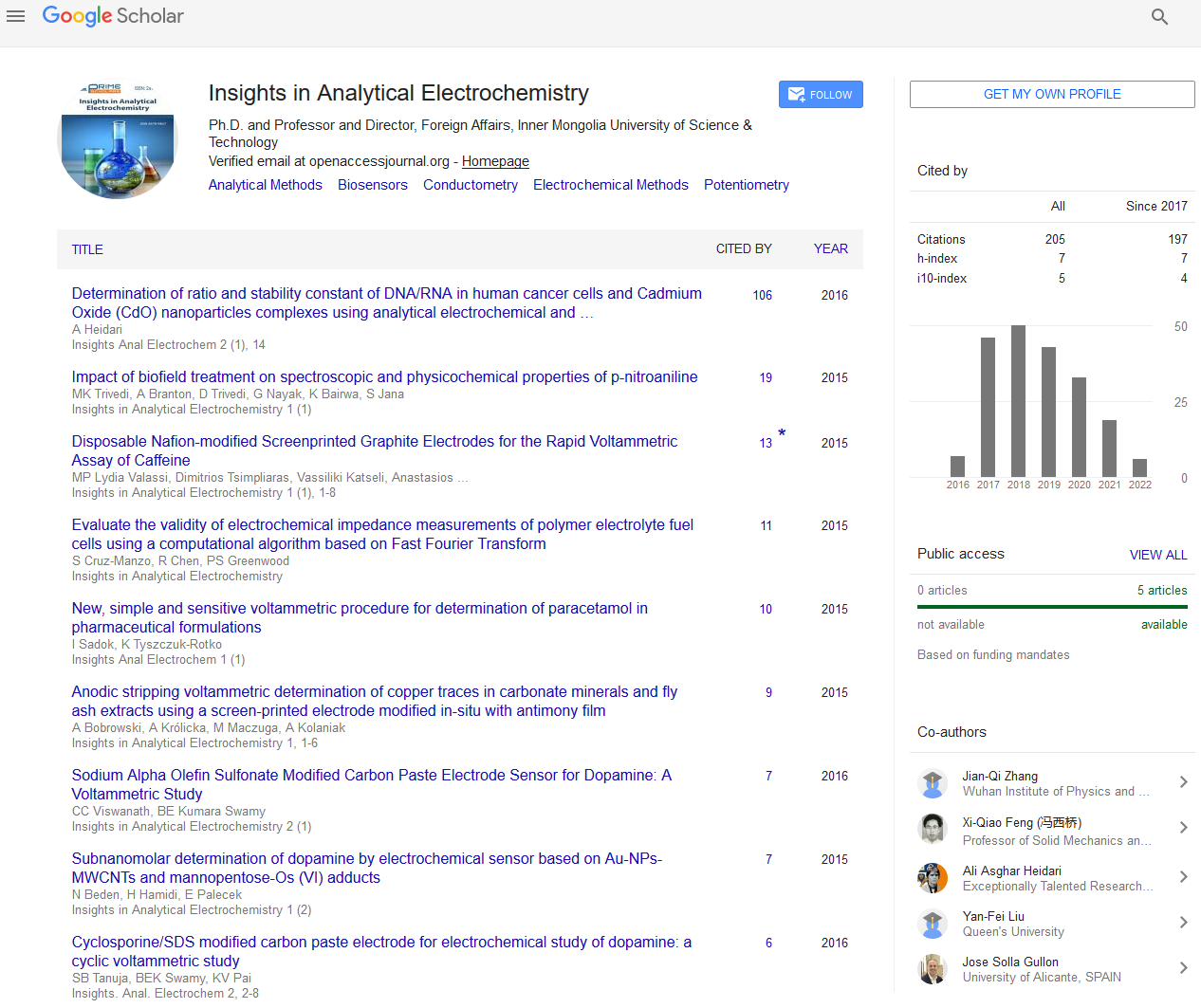Commentary - (2024) Volume 10, Issue 4
The Integration of Artificial Intelligence in Modern Pharmacy Practice
Andrea Luca*
Department of Chemistry, Technical University of Denmark, Denmark
*Correspondence:
Andrea Luca,
Department of Chemistry, Technical University of Denmark,
Denmark,
Email:
Received: 02-Dec-2024, Manuscript No. IPAEI-25-22548;
Editor assigned: 04-Dec-2024, Pre QC No. IPAEI-25-22548 (PQ);
Reviewed: 18-Dec-2024, QC No. IPAEI-25-22548;
Revised: 23-Dec-2024, Manuscript No. IPAEI-25-22548 (R);
Published:
30-Dec-2024, DOI: 10.36648/2470-9867.24.10.34
Description
Pharmacy is a crucial field in healthcare that focuses on the
preparation, dispensing, and appropriate use of medications.
It serves as a bridge between medical science and patient
care, ensuring that individuals receive the right medicines
in the correct dosages and with appropriate guidance. Over
time, the role of pharmacists has evolved significantly from
simply dispensing medications to providing patient-centred
services, including counselling, medication management,
and health promotion. The history of pharmacy dates back
to ancient civilizations. Early records indicate that medicines
were used in Mesopotamia, Egypt, China, and India as far
back as 2600 BCE. Ancient Egyptian texts such as the Ebers
Papyrus contained extensive medicinal formulations. Greek
and Roman contributions to pharmacy, particularly by figures
like **Hippocrates and Galen, laid the foundation for modern
pharmaceutical practices. During the Middle Ages, the
profession further developed through apothecaries, which
were precursors to modern pharmacies. With the Renaissance
and Scientific Revolution, significant advancements in
chemistry and medicine shaped the field. The Industrial
Revolution brought large-scale pharmaceutical manufacturing,
making medicines more widely available. Today, pharmacy is
a highly specialized and regulated profession integrated into
healthcare systems worldwide. Pharmacy is a diverse field with
various branches catering to different aspects of healthcare
and medicine production. Some of the major branches include.
Community pharmacies, also known as retail pharmacies, are
the most common form of pharmacies where pharmacists
dispense prescription and over-the-counter medications.
Pharmacists here also provide medication counselling, health
screenings, and vaccination services. Hospital pharmacists
work within healthcare institutions, collaborating with doctors
and nurses to ensure patients receive the most effective
medications. They are responsible for managing drug therapies,
compounding sterile medications, and monitoring patient
outcomes. Clinical pharmacists work directly with healthcare
providers and patients to optimize medication therapy. They
focus on disease management, medication reconciliation,
and ensuring drug efficacy and safety. Industrial pharmacists
are involved in the research, development, manufacturing,
and quality control of pharmaceutical products. They ensure
that medications are produced according to strict regulatory
guidelines and are safe for public use. Regulatory pharmacists
work with government agencies and organizations such as the
Food and Drug Administration (FDA) and the World Health
Organization (WHO) to ensure that pharmaceutical products
comply with laws and safety regulations. Compounding
pharmacies create customized medications tailored to the
needs of individual patients. This may include altering dosage
forms, removing allergens, or preparing unique medication
combinations. Nuclear pharmacy specializes in preparing and
dispensing radioactive materials used for diagnostic imaging
and treatment in nuclear medicine. Pharmacists play a vital role
in the healthcare system. Their responsibilities extend beyond
merely dispensing medications; they provide essential services
that contribute to better patient outcomes. Pharmacists ensure
that patients receive the correct medications in the appropriate
dosages. They verify prescriptions, check for drug interactions,
and provide guidance on proper usage.
Acknowledgement
None.
Conflict Of Interest
The author's declared that they have no conflict of interest.
Citation: Luca A (2024) The Integration of Artificial Intelligence in Modern Pharmacy Practice. Insights Anal Electrochem. 10:34.
Copyright: © 2024 Luca A. This is an open-access article distributed under the terms of the Creative Commons Attribution License, which permits unrestricted use, distribution, and reproduction in any medium, provided the original author and source are credited.

